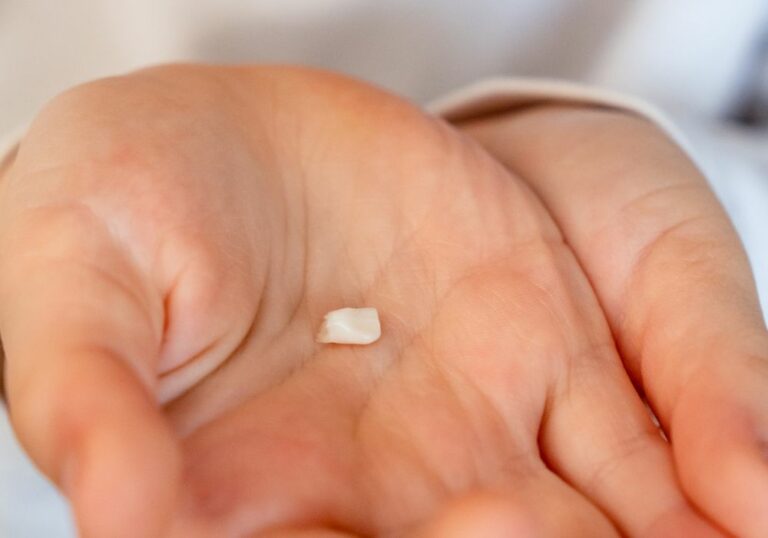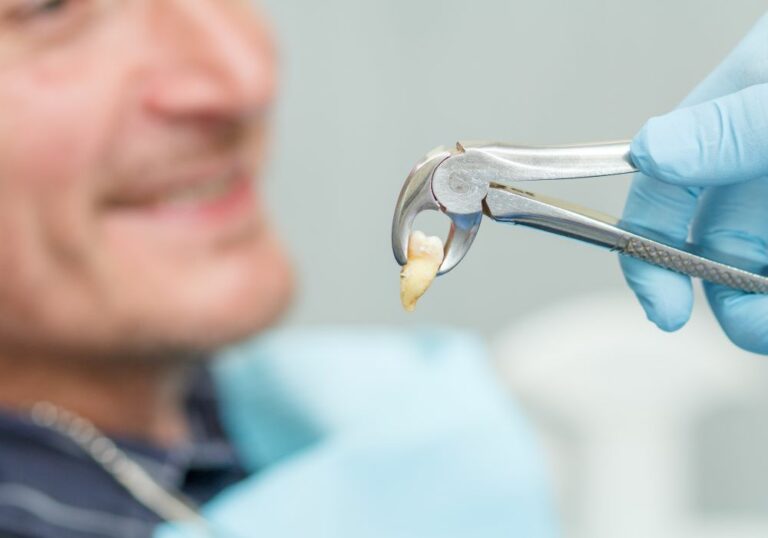Do you have sensitive teeth and would like to have your teeth whitened? Or perhaps you have had teeth whitening treatment in the past, which left you with teeth sensitivity, and now are worried about doing it again?
If the answer to either question is yes, what can you do to get whiter teeth and a brighter smile without making your teeth sensitive? Luckily, it is possible to get your teeth whitened even if you have sensitive teeth or have experienced tooth sensitivity following a whitening treatment before.
Continue reading to find out how to whiten sensitive teeth.
What Can Cause Tooth Sensitivity?
In the United States, approximately one in eight people have dental hypersensitivity more commonly called tooth sensitivity. But what causes it and why can dental whitening make it worse?
The Whitening Treatment
While the exact trigger for teeth sensitivity either during or following dental whitening is not clear, the primary explanation focuses on the impact of peroxides. The peroxide eliminates stains that have formed on the teeth over time but it also causes some demineralization that will increase the porosity of your teeth.
Apart from the actual treatment and the impact of the bleaching solution on the dentin and enamel, there are other reasons why you may experience teeth sensitivity when you have your teeth whitened. They may also cause general tooth sensitivity.
Receding Gums
If you have gum recession, your teeth will be more sensitive. This is because the receding gums leave more of your teeth and their roots exposed. This makes them more sensitive to whitening products as well as hot and cold food and drinks.
Gum recession is caused by a range of factors such as gum disease, aging, hormonal changes, genetics, and smoking. You can prevent receding gums by following a good oral health routine, which includes brushing your teeth twice every day using a toothbrush with soft bristles, flossing once a day, and using mouthwash with fluoride.
Enamel erosion
Our teeth are protected from decay and other damage by a hard outer layer called enamel. However, the enamel can erode as we get older. This exposes the sensitive layer beneath the enamel called dentin, leading to sensitive teeth.
Enamel can erode faster if we consume a lot of acidic foods and drinks or brush our teeth too hard. Some medical conditions such as bulimia and acid reflux can also erode the enamel on the teeth faster.
Dental Cavities
A dental cavity creates plaque that coats your teeth. This leads the tooth enamel to break down. Over time it will make a hole in your tooth and expose the sensitive dentin and pulp inside your tooth.
Cavities can cause pain and discomfort. If not treated, they can lead to tooth decay and require extensive treatment, which may include tooth extraction or root canal treatment. These treatments will also be more expensive than treating the cavity early on.
Should You Whiten Your Teeth if You Have Sensitive Teeth?
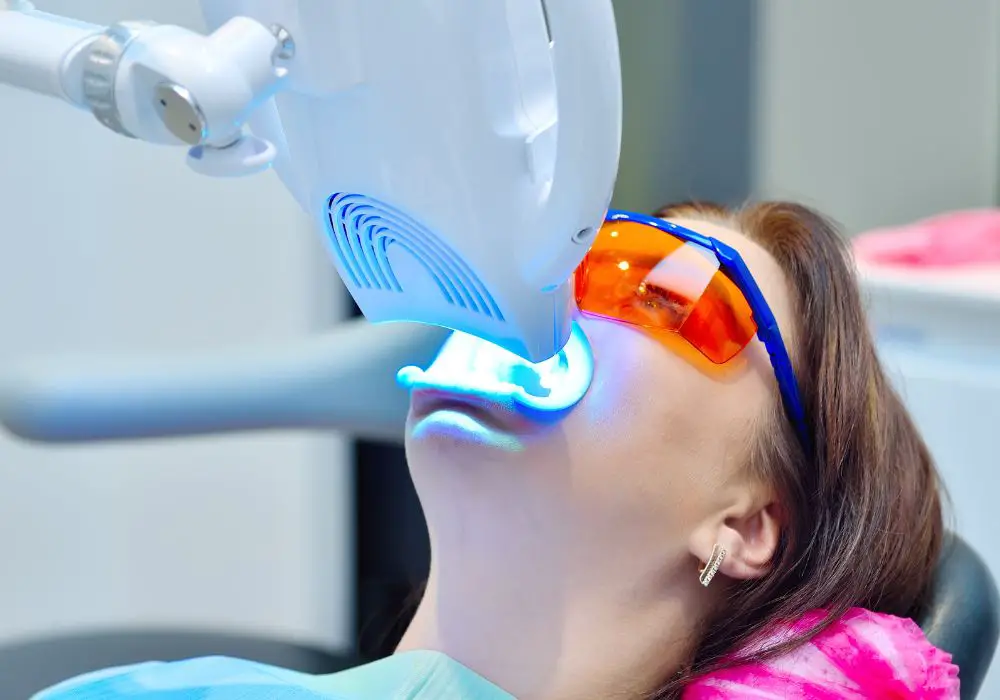
While dentists used to advise patients with sensitive teeth not to have teeth whitening treatments, advanced techniques, and procedures mean people with sensitive teeth can have them whitened, too. Teeth whitening methods range from professional teeth whitening to home treatments.
Laser Teeth Whitening
Having your teeth whitened using a specialized laser is probably the best-known professional option for whiter teeth. The light energy works together with the heat from the laser to break down stains and remove discoloration from the teeth. The result is teeth that are seven to ten shades whiter.
Laser teeth whitening is far superior to at-home bleaching methods. It is non-invasive and therefore better for people with teeth sensitivity. A whitening session will take about an hour and will cost from $400 up to around $1,800 depending on where you have the treatment done and the level of discoloration.
Teeth Whitening Trays
During teeth whitening procedures that use custom-made trays, your dentist will take an impression of your teeth to create whitening trays that fit your teeth perfectly. The trays, filled with a gel that contains hydrogen peroxide to achieve a natural-looking, uniform result, are then placed on your teeth.
Customized trays and dentist-prepared whitening mixtures work better than trays and whitening solutions you can buy over the counter. Using a custom-fit tray will prevent spilling and reduce potential irritation to the gums or tongue. Like the laser whitening option, custom trays are non-invasive and suitable for people with sensitive teeth.
Most custom-made tray treatments will cost between $150 and $600 on average. Although the cost can be higher in some areas of the United States. For most people, the recommendation is to wear the trays for two to four hours every day for one or two weeks.
Dentist-Provided At-Home Whitening Kits and Strips
Whitening strips and kits provided by your dentist are similarly priced to custom trays, averaging between $150 and $600. Both the kits and strips use professional-level whitening gel for best results.
The strips need to be used twice a day from thirty minutes to a couple of hours at a time. The whitening kits are usually used overnight for up to ten hours at a time. Both kits and strips work well with sensitive teeth because they have a lower concentration of whitening agent and may contain fluoride or potassium nitrate to desensitize the teeth.
Non-Professional Whitening Options
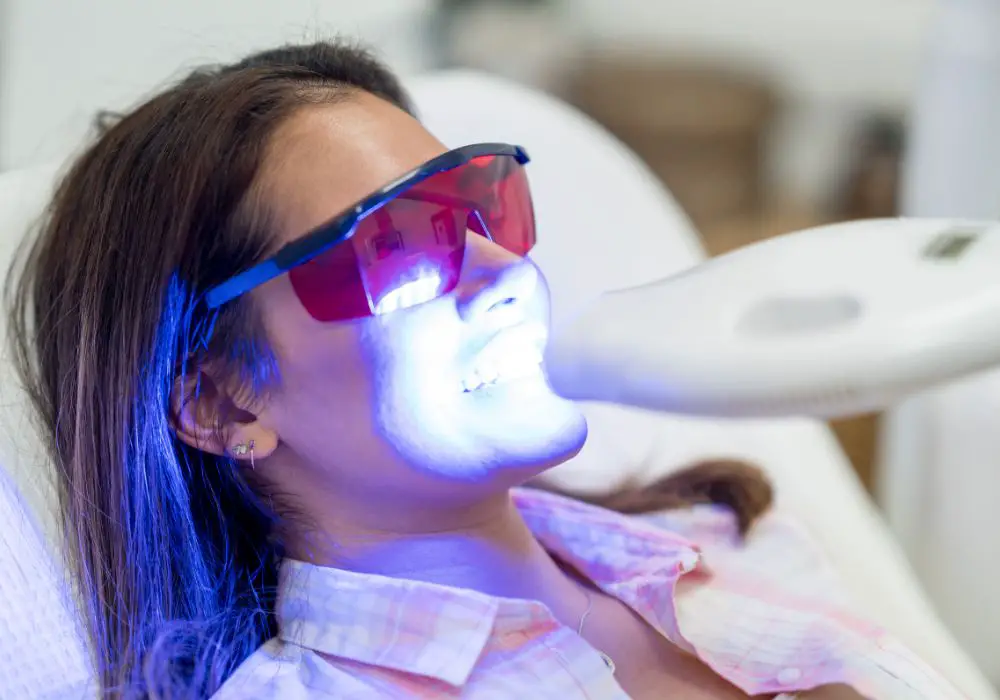
If you are not keen to spend a lot of money on professional whitening treatments, there are other methods you can try. However, they are likely to be less effective and take a lot longer to produce desired results than professional treatments. Some may only lighten your teeth by a few shades and sometimes you may not notice any difference.
In addition, there is no conclusive evidence on their suitability to people with tooth sensitivity and some of them may damage the enamel on your teeth or your gums if not used correctly. When using at-home whitening methods, discontinue if your teeth get sensitive or you experience any pain or irritation.
Whitening Toothpaste
To whiten your teeth at home gradually over time, you can try whitening toothpaste. The whitening ingredients in whitening toothpaste vary and some may not agree with sensitive teeth. Also, you may not get the results you hoped for.
You can also try activated charcoal toothpaste which is more absorbent than regular toothpaste. However, you should consult with your dentist before using charcoal toothpaste as it may interact with some medication if ingested or harm tooth enamel and increase sensitivity.
Over-The-Counter Whitening Products
There is a range of whitening products available over the counter, including treatments suitable for people with sensitive teeth. You can ask your dentist about treatments you can get over the counter or consult a staff member at a chemist. They should be able to recommend whitening products that will protect your teeth from sensitivity.
Baking Soda
Baking soda is used in some whitening toothpastes but you can also make your own baking soda paste to whiten your teeth. Simply mix baking soda and water until you get a paste. Brush your teeth with the paste for up to two minutes at a time and no more than a couple of times per week.
Because baking soda is a mild abrasive, it can remove stains from the surface of teeth. It can also remove plaque, prevent tooth decay, and neutralize acids in your mouth. However, using baking soda too often can disrupt the pH balance in your mouth and lead to issues such as a dry mouth or a higher risk of cavities.
What if None of These Treatments Suit You?
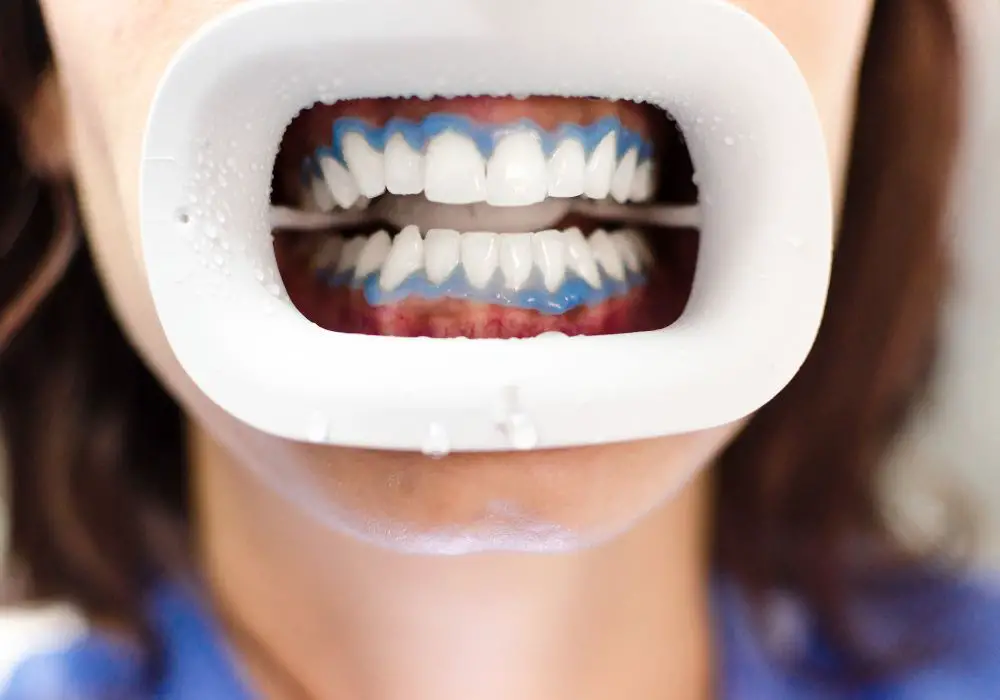
If you either do not want to go for any of the above options or find that they make your tooth sensitivity worse, you might like to consider veneers. Not only will they give you the appearance of whiter teeth but they also have several other benefits.
Veneers can be used to hide imperfections and close gaps in your teeth. Because veneers are custom-made for your teeth, they look very natural. They can also help straighten your teeth without the need for orthodontics.
If you want veneers, you will need to be prepared to spend a lot. They are likely to cost between $400 and $2,500 per tooth, depending on the type of veneer with porcelain veneers costing the most. However, they have good longevity, with the best veneers lasting twenty years or more.
Conclusion
If you have sensitive teeth, there are different options available to you either at the dentist or at home. While at-home teeth whiteners are cheaper, they are not likely to be as effective as in-office whitening in giving you a whiter smile.
If you are using a home teeth whitening system, discontinue use if you experience tooth sensitivity, irritation, or pain. You may also want to speak to your doctor before you use these methods as they will be able to advise you about the ingredients in the products and whether they are likely to make your teeth more sensitive.


